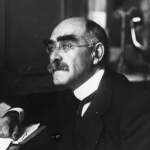Halfway between crib and cage the French language puts crate, a simple slatted box for transporting those fruits that fall ill at the least lack of air.
Built in such a way that it can be broken down effortlessly after use, it is never used twice. It is really more perishable than the deliquescing foodstuffs that it carries.
On the corners of streets that lead to the markets, it gleams like white wood without wood’s vanity. Still very new, and slightly surprised to find itself in this awkward position, having been thrown into the gutter without hope of retrieval, it remains a most likable object on whose fate we will not dwell for long.
Built in such a way that it can be broken down effortlessly after use, it is never used twice. It is really more perishable than the deliquescing foodstuffs that it carries.
On the corners of streets that lead to the markets, it gleams like white wood without wood’s vanity. Still very new, and slightly surprised to find itself in this awkward position, having been thrown into the gutter without hope of retrieval, it remains a most likable object on whose fate we will not dwell for long.
Translated from the French








Comment form: